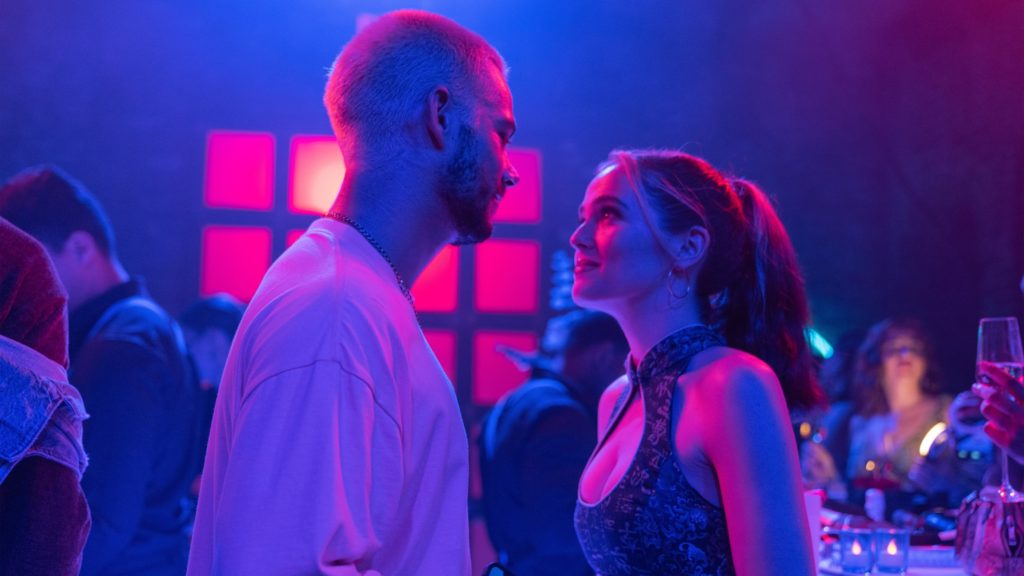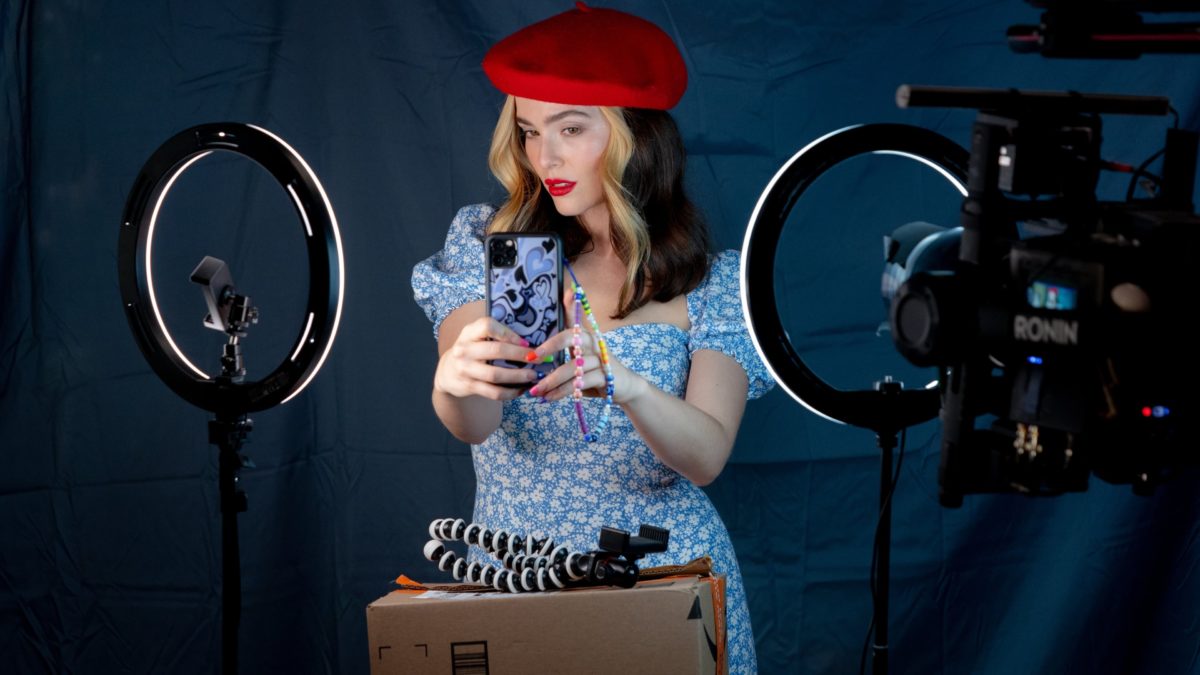(I promise)
Satire is hard. A good satire is not something that exists in a vacuum. It must be built on top of something else that is already successful. The Truman Show is a great satire on the commoditization of everyday life only because it’s a terrific, thoughtful film; Office Space skewers braindead white collar office life effectively only because it’s a hysterical comedy. Not Okay is not a particularly good film, which knee-caps its potential as a biting satire of mourning as a social media status symbol.
The flip side of “satire is hard” is that satire is easy. It is easy, at least, to chalk up pretty much anything as “satire.” You can present an exaggerated version of something without supplementing it with jokes or purpose and simply call it a “satire” of a concept. Not Okay has a whole lot of that type of satire. The most egregious example is a Pete Davidson-inspired caricature of an Instagram influencer played by Dylan O’Brien that is somehow getting good buzz despite being aggressively annoying. At least his sleaziness gets a payoff in the most amusingly pathetic sex scene I’ve seen in awhile; the movie rapidly discards him afterwards.

Not Okay follows Danni Sanders (Zoey Deutsch) as she finds herself in an escalating lie that she was the near-victim of a terrorist bombing in Paris, when in fact she was faking her travels with Photoshopped pictures for Instagram posts.
The movie’s largest flaw is that it treats the the terrorist attack itself as an inconvenient plot detail, similar to a missed train or overdue bill. The Ariana Grande bombing and a fictionalized school shooting are referenced as basic worldbuilding landscape, the former actually used as a punchline. I’m not expecting misery porn, but it never felt real. It seems disingenuous of the movie to be so haphazard with these tragedies when it’s mocking the characters for their own incongruous ways of addressing the attacks. It makes the whole thing feel somewhat cheap and thoughtless.
Eventually, Danni connects with a real trauma victim, school shooting survivor Rowan (Mia Isaac). Rowan’s material disrupts what little sense of comic flow the film has by making her the exact kind of stereotypical post-crisis victim that the movie, at least in some part, hopes to deconstruct — all tears and guilt. However, I admit to finding significant value in Rowan’s character; Isaac is terrifically charismatic and human in such a cliche of a role, absolutely begging to be cast as the lead in some teen drama. And this more serious look at the real human cost of violence provides a counterpoint to Danni’s falseness. It’s not especially clever, but I think the contrast of having a “real” victim is ultimately a positive for the film, emphasizing the “wrongness” of performative victimhood like Danni’s.
I will add here that I am a “survivor” of shooting myself. I was at Virginia Tech during the April 16 shooting. Two of my friends were victims, and the gunman walked right past my dorm room between the two shooting incidents. In the ensuing weeks, I was showered with generosity and sympathies I didn’t really think I deserved. I still hesitate to use the word “survivor” when describing myself, as I didn’t really do anything to “survive.” This experience actually made me slightly more sympathetic to all of the characters, even Danni, as I recognized her (obviously exaggerated) sense of guilt at getting handled with soft-gloves and kindness despite not ever feeling in danger.
But what I really had hoped for was some depth to Rowan. In more adept hands, there would be some nuance in the contrast between the characters: Rowan might have her own layers of selfishness or moral confusion, or Danni’s own narcissistic efforts might have some positive side effects. Not here, though. Rowan is an utter saint without shading, and Danni’s one contribution, a viral hashtag bringing awareness to gun violence, is played for yuks and eye-rolls.

Perhaps the boldest and strangest narrative decision is the film’s ending, or lack thereof, really. As it proudly announces with unnecessary title cards, Danni does not get a “redemption arc” after she is exposed as a fraud. The scene where we expect her character growth to pay off or at least implode with karmic justice, the film simply ends. There’s no resolution other than a thematic emphasis on the shittiness of people like Danni, as shown by a Rowan monologue. It’s an abrupt and jarring finale. It’s like the movie ran out of ideas and used the absence of an idea as an idea itself.
From a formal perspective, the movie is fine. The direction is functional but rarely interesting; one hip party has a neon look to it. And the acting is routinely solid: Deutsch constructs a coherent character without elevating the material to anything special, and most of the supporting cast is unremarkably good.
It all could have worked if it was legitimately funny or insightful. But it’s not. I laughed, like, three times; two of which were in the first five minutes. (Danni has a great, tasteless line about 9/11 FOMO.) It’s so aggressively “online” which, yeah, is the point of the satire, but it completely exhausted me. Instagram and Twitter and TikTok screenshots and clips do not make great cinema, and I get grumpy if I need to look more than one or two phrases up on Urban Dictionary. Okay, zoomer.
- Review Series: 2022: Year in Film
Is It Good?
Not Very Good (3/8)
Dan is the founder and head critic of The Goods. Follow Dan on Letterboxd. Join the Discord for updates and discussion.

